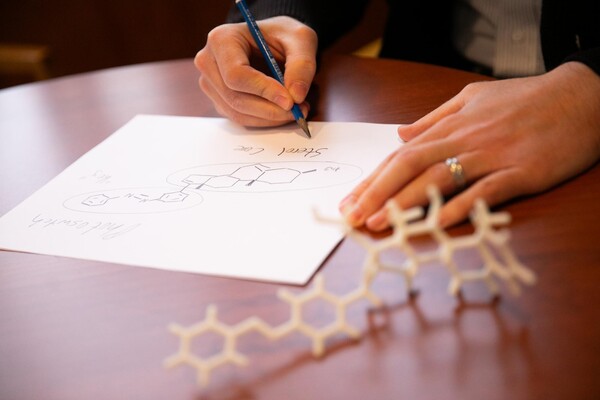
nocred


nocred

High-speed laboratory images capture two distinct “sandball” shapes formed when raindrops strike dry, sloped sand and roll downhill. (Top) Peanut-shaped sandballs, where grains coat the surface of a liquid core. (Bottom) Donut-shaped sandballs, which densify into rigid, wheel-like structures with a hollow center, enabling far more efficient sediment transport than splash erosion alone.
(Image: Daisuke Noto)

Image: Flavio Coelho via Getty Images

Despite the commonality of water and ice, says Penn physicist Robert Carpick, their physical properties are remarkably unique.
(Image: mustafahacalaki via Getty Images)

nocred

(Pictured) An artist’s depiction of a single cell moving through the nanofabricated mictostrucures biophysicist Arnold Mathijssen’s team used to study E. coli.
(Image: Courtesy of Ruoshui Liu/Cylos Studio)

Wall Street rides an AI-fueled rally that has pushed major indices to new highs that’s driven largely by a handful of dominant tech firms. As enthusiasm around artificial intelligence reshapes markets and concentrates risk, questions are mounting about whether the surge reflects durable growth or the familiar shape of a speculative bubble. Wharton finance crises expert Itay Goldstein explains how bubbles form, why they can be so dangerous, and what today’s AI boom shares—and does not—with past market madness like the one described in “The Big Short.”
(Image: Getty / Spencer Platt)

Biologist Mia Levine and colleagues have demonstrated how a pair of essential protein partners undergo rapid evolutionary change to counter fast-evolving parasitic DNA while maintaining core cellular functions. The work presents novel insight into how evolution works at the molecular level.
(Image: Getty images/Joao Paulo Burini)

nocred